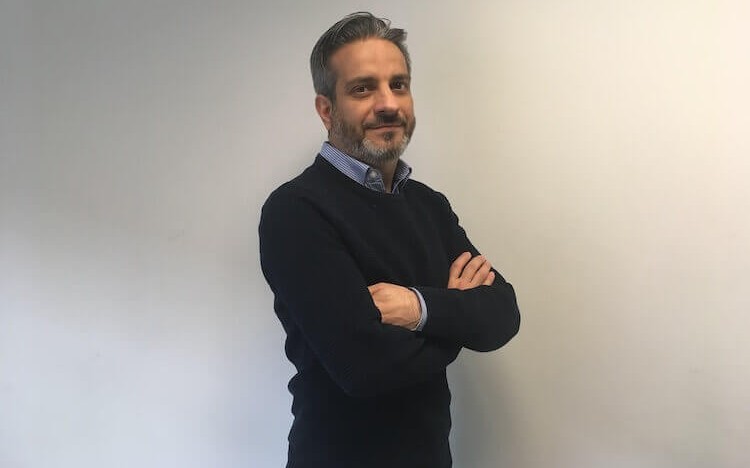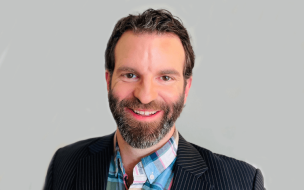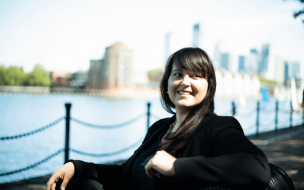Several factors are important to MBA applicants when considering a business school, including cost, location, ranking, and program type.
Right before he began his MBA journey in 2014, Roberto di Nuzzo was working as a finance analyst for EE, launching 4G with his team.
He created a new KPI tool and process for management and chief executives to use, and he even volunteered himself to be the employee engagement representative for his department.
But Roberto decided to put a full stop to his active corporate career to explore what he enjoyed the most: innovation.
When he started considering business schools, Cranfield School of Management stood out for its strength in entrepreneurship—the school is ranked in the top 20 globally for entrepreneurship by The Financial Times.
It was through his MBA experience at Cranfield that Roberto entered the world of entrepreneurship and began to help develop two startups.
A program for budding entrepreneurs
Roberto’s MBA experience began with an entrepreneurship module, where he analyzed case studies on well-known startup stories. The class also had a venture capital module, which involved a competition where students valued companies and interacted as venture capitalists themselves.
The MBA program also featured leadership simulations involving human interaction and reflection analysis.
"We made a simulation on strategic innovation where we actually built a moving car with software, all made electronic pieces,” says Roberto. "Then we had to defend why ours was better than the others, like you would in a debate.
"It’s not only the fact that you use technology to do simulations, but it’s the fact that you interact with real life events [that’s beneficial].”
One rewarding role for Roberto was his presidency of the Cranfield Entrepreneur Club.
As president, he organized events with guest speakers, allocated senior MBA mentors to master’s in management students, and represented Cranfield in an event called Clean Equity Monaco, where he supported the running of the sustainable technology conference.
There, he met cleantech entrepreneurs, investors, and policymakers from around the world, expanding his network.
Taking over a startup
The talks Roberto organized during his time as the Cranfield Entrepreneur Club president became a vital stepping-stone to his first role with the startup Tacit Simulations, a software development company which creates teaching solutions.
Among the four guest speakers he had arranged for a talk, one man named Wesley Randle—the founder of Tacit Simulations and an EMBA alumnus from Cranfield—turned out to be his next employer.
Wesley runs a business simulation game where participants act as the CEOs of companies that trade intellectual property.
Participants win by accumulating the most money and valuable technologies by cooperating and competing with human or AI-controlled companies. They must minimize the risk of being sued for infringement and maintain a competitive IP advantage over others in the industry.
“I liked the idea and after finishing my MBA, I did an internship with Wesley for about three months,” recounts Roberto. “About a year or two later, he contacted me to take over the company and I’m now dealing with leading universities in the UK and Hong Kong,” he continues.
"We’re applying science-based research to show what learning impact the game has on students.
"The teamwork that you go through at Cranfield teaches you a lot about how to create teams that have a high positive impact.”
Developing two startups simultaneously
Through Wesley, Roberto also learned about an opportunity with his next startup, E-Lucid.
E-Lucid is an e-commerce shopfront that powers platforms for some of the world’s leading universities, technology transfer, and research organizations. Companies can license and sell almost anything on the system.
“E-Lucid was looking for someone that had entrepreneurship knowledge and experience to help scale up the business internationally as well as awareness of intellectual property commercialization,” Roberto says.
“Both are topics I learned about from Cranfield and the experience I gained after the course.”
Roberto’s typical day includes generating new leads worldwide, product development, recruitment, and running workshops on intellectual property. Five UK universities use the E-Lucid and Roberto is now looking to break the US market.
“My main passion right now is on startup growth and I would like to explore even more opportunities with companies that incorporate corporate social responsibility in their ethos,” he says.
“I love seeing the transition from startup to scale up.”
RECAPTHA :
2d
2a
57
0d








